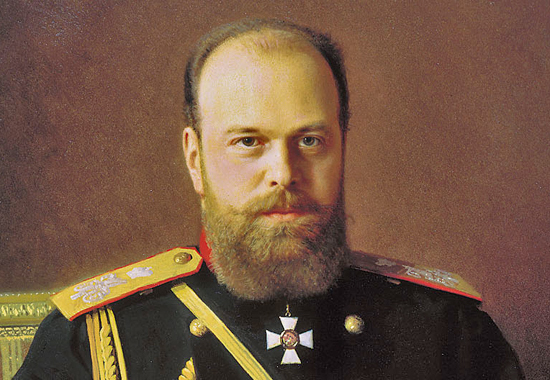I still do not understand my father, Alexander II.
“It was all his liberal policies, that led to his assassination” (CIE). I just don’t get what I should do.
I mean, I do agree with him about Pan-Slavism. Like how I tried to “initiate cultural Russification in the Baltic provinces” (Encyclopedia of Russia). Talking about that, “I did display extreme caution on foreign policy” (Aprelenko).
What I really screwed up on, was the Great Famine. Since vodka was extremely popular, I “decided to establish a state vodka monopoly. This was in order to regulate vodka sales since the state became the sole purchaser and seller of all spirits produced for the market. Unfortunately, it led to a great financial loss for the Jews” (Encyclopedia of Russia). As a result, many Jews emigrated from the country.
Due to the vodka monopoly, “The Russian economy began to perform in a higher degree of frugality. In order to solve this problem, I tried to import goods to recover the economy” (Aprelenko). However, no one had any money to pay for foreign goods and as a result, many people were malnourished. On the other hand, “the weather was brutal. Many crops have failed” (Johnson). The failure of crops and increase of price led to the Great Famine.
On top of that, I was depressed about my father. “In response to the assassination, I enacted a statute enabling the government to crack down on the political opposition by imposing emergency regulations” (Encyclopedia of Russia). I did not want people to assassinate me because I did not want to die painfully. In order to accomplish this goal, “I tightened police oppression and increased censorship of press in order for the citizens of Russia to stop talking about my father’s death” (Aprelenko). “There were two types of security measures, one called the “Reinforced Security (Usilennaya okhrana) and another called the Extraordinary Security (Chrezvychaynaya okhrana). Under Reinforced Security, officials could keep citizens in prison for up to three months, impose fines, prohibit public gatherings, exile alleged offenders, transfer blocks of judicial cases from criminal to military courts and dismiss zemstvo employees. Under Extraordinary Security, a region was placed under the authority of a commander in chief, who could dismiss elected zemstvo deputies, suspend periodicals, and close universities to up to a month” (Encyclopedia of Russia). In a way, I guess it seemed to others that I “decided to put more emphasis on isolation or exclusion than on integration” (Lowe). I did not want people to harm me, as they have harmed my father.
During my time as a tsar, I tried to fight for peace. I was also afraid of what will happen if I did something that people did not agree with. I do not want to be assassinated like the other tsars. Instead, I decided that since Russia was a big country, transportation should be more efficient. Therefore, when peace came, “I declared the construction of the Trans-Siberian railway” (Aprelenko).
Well, I guess I am ready to see what will happen to Russia in the future.
